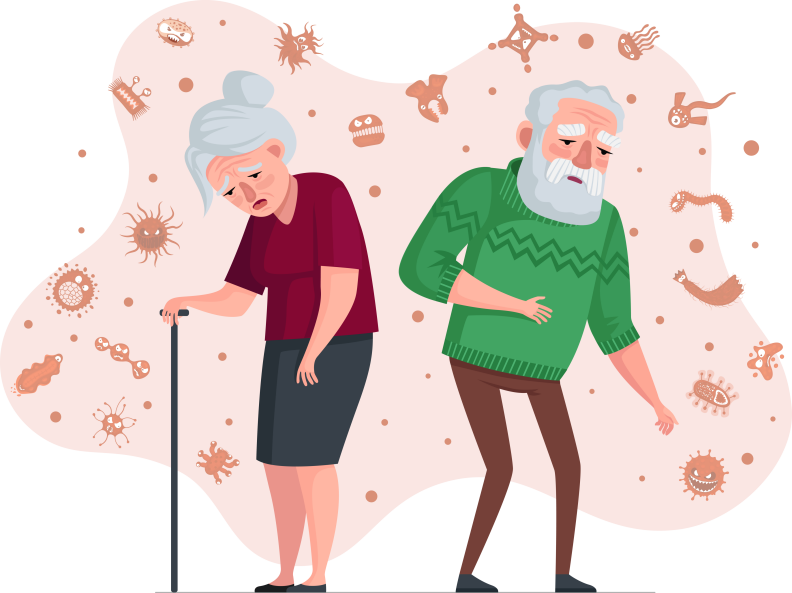Heart-to-Heart with HealthCap Ep. 31: Vaccine Recommendations with Dr. David Gifford


Heart-to-Heart with HealthCap Ep. 30: Bivalent Vaccine Hesitancy
HealthCap Vaccine Toolkit 2023



I got vaccinated and still got sick, so the vaccine doesn't work.
FALSE
You may have an immune response that causes you to feel ill
Getting vaccinated does not make you contagious.
TRUE
The vaccines do not contain a live virus which is needed to give you the virus
Vaccines contain toxic materials.
TRUE & FALSE
Any substance can be harmful in significantly high doses, even water. The ingredients in vaccines are usually found naturally in the body, the food we eat, and the environment around us. The amounts in vaccines are very small and will not “poison” or harm the body.
Vaccines are known to cause autism
FALSE
A single study, which was poorly designed and already discredited, reported such an association in 1998. Since then, hundreds of well-designed studies have confirmed that there is no risk of autism from vaccination.
Vaccines contain microchips that allow people in power to track you
FALSE
This is impossible. The size of the microchip required is far too large, the microchip would have to have an associated power source and would have to transmit a signal through at least an inch of muscle and fat and skin to a remote device
mRNA vaccines can permanently change your DNA
FALSE
mRNA is broken down quickly by the body. It never enters the nucleus, and cannot affect or combine with our DNA in any way to change our genetic code.
Vaccine-induced immunity is better than disease-induced immunity
NEITHER
A combination of the two, hybrid immunity, is better. While disease-induced immunity has more risks of severe illness, hybrid immunity is longer lasting and more effective than disease-induced immunity or vaccine alone.
mRNA vaccines were developed and tested too quickly to be safe
FALSE
Although COVID-19 vaccines were the first to complete all clinical trial stages and be licensed for use, the technology has been around since at least 2011. Because of this, it was possible to implement the technology as soon as the genomic sequence of the virus was shared.
If everyone around me is already immune, I don't need a vaccine
FALSE
Herd immunity occurs when a large portion of a community is immunized against a contagious disease; however, in cases where viruses mutate as they spread from person to person—such as COVID-19 and influenza—developing herd immunity is much less likely
Vaccine hesitancy is a delay in acceptance or refusal of vaccines despite the availability of vaccine services and supporting evidence. It is a complex issue influenced by various factors, including vaccine safety signals, misinformation, mistrust in the healthcare system, and convenience. The causal drivers of vaccine hesitancy are complex and context-specific, varying across time, place, and vaccines. Vaccine hesitancy is distinct from barriers that limit access to vaccines or vaccine services. 10 It is a motivational state of being conflicted about or opposed to getting vaccinated, influenced by how people think and feel about vaccines and the social processes that underpin vaccine acceptance.11
Hesitancy: indecision or disinclination, reluctance
Hesitant: undecided, doubtful, disinclined; lacking readiness of speech – Slow to act or speak especially because you are nervous or unsure about what to do: feeling or showing hesitation
Disinclined: not wanting to do something, lacking desire or willingness; unwilling; reluctant; averse
Vaccine hesitancy is a significant threat to global health and vaccination programs. The WHO has identified it as one of the top ten threats to global health.8 To address vaccine hesitancy, we need to rebuild public vaccine confidence through effective communication and community engagement.9
SOURCE: 2021 National Health Interview Survey (NHIS)

Many adults are not fully vaccinated and improving adult vaccination is a national priority.


Approximately 90% of influenza-related deaths and 50-70% of influenza-related hospitalizations occur among people in this age group.3

Influenza and RSV are particularly dangerous for older adults, as they can cause severe respiratory illness and pneumonia. The risk of hospitalization and death from respiratory viruses increases with age, with adults aged ≥65 years suffering the most severe health effects of seasonal influenza.
Adults are at risk of illness, hospitalization, disability, and death from vaccine-preventable diseases (VPDs). The Centers for Disease Control and Prevention (CDC) recommends vaccinations for adults based on age, health conditions, prior vaccinations, and other considerations to prevent morbidity and mortality from VPDs. Despite the burden and consequences of VPDs, vaccination coverage among U.S. adults remains low for most vaccines.7
Vaccinations are especially important for older adults because as people age, their immune system weakens, making it more difficult to fight off infections
Older adults are at a higher risk of hospitalization and death from respiratory viruses due to their weakened immune systems.
In the United States, respiratory viruses such as influenza and respiratory syncytial virus (RSV) cause hospitalizations and deaths among older adults each year.
More than just COVID
